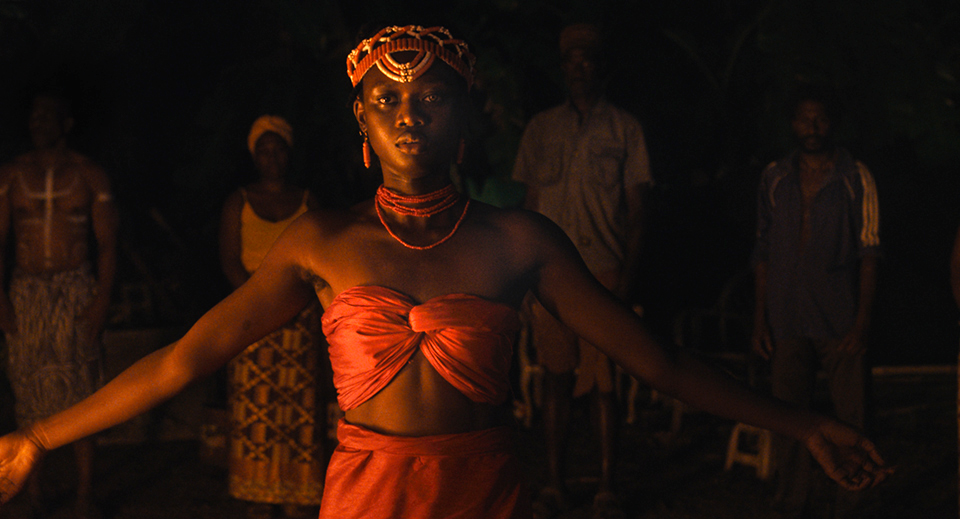With ‘Disco Boy,’ It’s Best To Let the Film Do the Talking
Sometimes one is reminded that art should be seen and artists not heard from.

A critic should know better than to read press releases. They’re a necessary evil, I suppose, being compendiums of facts designed to provide a leg up for anyone tasked to write about the subject under discussion. Double-checking the spellings of names and giving credit where credit is due are good things, but sometimes one is reminded that art should be seen and artists not heard from.
We all have our bugaboos, and mine is the word “other” or the particularly noxious “othering.” The term is a go-to appellation for postmodernists, post-colonialists, and other rarified enclaves that can’t leave the house without brandishing its grievances. Intended to accentuate the lot of the marginalized and dispossessed, the “other” is, in actuality, an intellectual wedge that doesn’t illuminate history so much as degrade our common humanity. The noble savage draped in academic drag? We don’t need it.
When the press materials accompanying “Disco Boy” came peppered with references to the “other” — well, it felt like the 1980s all over again. Producers Lionel Massol and Pauline Siegland praise writer and director Giacomo Abbruzzese for keeping “the relationship with the ‘other’ … at the heart of his cinema.” Mr. Abbruzzese is a bit more nuanced in his use of the term, writing that “the other, the enemy, rarely exists as a complex entity.” Is it a small sign of progress that he vows to “show the horror of war by giving the same emotional dignity to both camps”?
So, what about Mr. Abbruzzese’s debut feature? It includes a lead much admired by the international art house set, the German actor Franz Rogowski, and is shot by a veteran cinematographer, Hélène Louvart. Indeed, Ms. Louvart is vital. She brings a lush clarity to locations as varied in their lighting and color as the jungles of Niger, the backroads of Belarus, the streets of Paris, and the hubbub of a nightclub dance floor. Toward the mid-point of “Disco Boy,” Ms. Louvart switches to a thermal imaging camera for a scene of particular intensity.
The picture follows two separate currents that ultimately correspond and do so by glancing upon the supernatural. Aleksei (Mr. Rogowski) is traveling to Poland with his buddy Mikhail (Michal Balicki): They’re players on a Belarussian soccer team. After being warned by a border security guard to stay in the country or face jail time, the two men ditch their companions and hitch a ride with a truck driver. They’re setting off for France, with a smattering of the language at their disposal and dreams of endless glasses of Bordeaux.

Running parallel to this story are the adventures of Jomo (Morr Ndiaye) and his sister Udoka (Laetitia Ky), both of whom live in an isolated Nigerian village. These siblings share a distinctive family trait: eyes of different colors. Is this particular characteristic for real or a phantom of the imagination? What we do know for certain is that Jomo is the leader of a guerilla army seeking to prevent the exploitation of the region’s natural resources. At one point, his band of soldiers, all of whom brandish firearms, meets with a fashionable young woman from VICE news. Jomo plays it up for the Westerner, much to the delight of his colleagues. The scene is as stinging as it is obvious.
The picture takes its time in detailing the adventures of Aleksei, Jomo, and Udoka and how, exactly, they coalesce. “Alex” joins the French Foreign Legion, Jomo takes hostages, and Udoka dances in a Paris discotheque — cutting a rug in a manner not unlike the ritual dances she engaged in back home. Each individual’s road is bumpy with tangents that are vague in definition and, ultimately, come to a head that is disappointingly feel-good in emphasis. Up until then, Mr. Abbruzzese proves more adept at insinuation than polemics, and does so to the benefit of a compelling entertainment.

